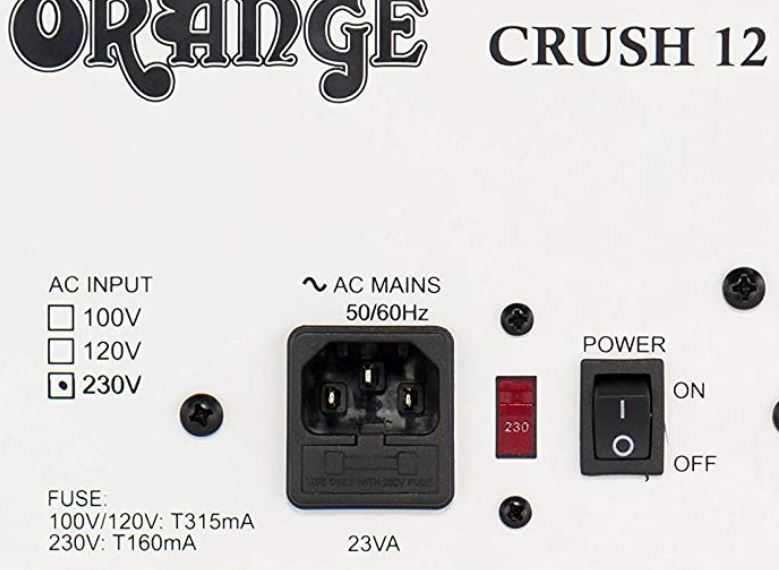Want to know how much power does your guitar amp draw and how much is it costing you in electricity bills? This guide is for you.
On average, guitar amps consume between 100 to 200 watts of electricity per hour. Its maximum electricity consumption is determined by the voltage on your wall outlet, multiply by its fuse value. However, most users will not draw this maximum power.
As a comparison, here are some power consumption for common household fixtures
- ceiling lights; 60 Watts
- fridge: 100 to 200 Watts
- air conditioner: 1000 to 1200 Watts
What is my electricity bills for amp usage
The amount of money you need to fork out for your amp usage depends on
- Power consumption of amp (see above)
- Number of hours you are playing per month
- Average volume
- Price of electricity in your country
As an example, assuming the following conditions below for my amp usage:
- Power consumption: 360 Watts maximum
- 2 hours per month
- Volume is 30% maximum
- $0.3 per 1000 watts
This is what I would need to pay:
- Watts used per hour: 360 watts * 30% = 108 watts per hour
- Watts used per day: 108 watts * 2 hours = 216 watts
- Watt used per month = 216 watts * 30 days = 6480 watts
- Cost per month = (6480/1000) * $0.3 = $1.94
As you can see, playing an amp doesn’t really cost you much in term of electricity bills. You probably spend more on your computer usage and air conditioning.
Electricity consumption for common guitar amp models
For you to know the power consumption for your particular amp, ,you need to read the fuse value, which can be found at the label at the back of your amp.
For reference, here are the fuse value and the corresponding electricity consumption of popular guitar amps.
Guitar Amp Models
Fuse Value
Power (Electricity) Consumption
Fender Champion 100
1.5A
180 Watts
Orange Crush 12
315mA = 0.315A
38 Watts
Marshall Amp
2A
240 Watts
Monoprice 611815
0.5A
60 Watts
Line 6 Spider Jam Guitar Amplifier
5A
600 Watts
Mesa Express 5:50
3A
360 Watts
What factors determine guitar amp power consumption?
- Volume: The higher the volume, the more power your amp will need to draw.
- Class A vs AB amp: The class determines how much power an amp in idle state is drawing. For Class A amp, it usually runs at 50% of maximum power even in idle state so power consumption is the highest. Class AB amp usually uses low RPM so power draw is the least in idle state. Unfortunately, the type of information is not usually disclosed on any labels found on the amp.
- Solid state amp vs Tube amp: In general, solid state amp do not require any pre heating, unlike the tube amp. You can actually experience it yourself. Play both amps for an hour and see which one gets hotter.
Power consumption vs output power
There might be some confusion over how much power is drawn by your amp vs the amount of power it can produce.
When we say this is a 30 watt amp, we are referring to the power being produced by the amp. This is the power being feed into your speakers.
For power consumption, we are talking about the power being drawn from your wall outlet. Usually, this power usage will be higher than what your amp is feeding the speaker.
The reason is due to heat loss, which in turn is due to electrical inefficiencies.
However at low volume, the power drawn can be lower than the stated wattage of your amp i.e. your power drawn can be lower than the 30 watt for a 30 watt amp.
Conclusion
The overall conclusion is that guitar amps do not use a lot of electricity, at least when compared to the likes of computers or air conditioning machines. As such, they have minimal impact on your electricity bills.




My Spider Jam says 300W on the back